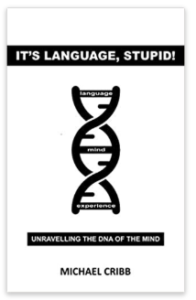When is a question not a question? To answer this we need to look at the prosody of the utterance and its co-text.
Chris Philp, Conservative MP, came under fire after his appearance on BBC Question Time this week after seemingly not knowing whether Congo is a different country from Rwanda. But in the run up to the UK general election in the Autumn, the way politicians present their utterances and the co-text in which they are delivered will be doing a lot of lifting. It is right that we understand how this takes place and what was meant.
Proclaiming Intonation
You can listen to the offending remark in the audio clip and read the transcript below. On the surface, an utterance such as ‘X is a different country from Y, isn’t it’ seems to suggest Philp does not know if the two countries are different or not.
CP=Chris Philp; FB=Fiona Bruce
36 CP: would people be sent from (0.6)
37 well (.)
38 ↘︎Rwanda is a different country from Congo isn't it (0.3)
39 it's a different [country
40 FB: [yes
41 ((AM smiles and gives up))
42 ((general laughter and incredulities start==>))
43 CP: it is
44 FB: yes
However, if we look at the intonation pattern on the utterance below we can see that it is clearly falling for the length of the utterance, even through the tag at the end (‘isn’t it’). Falling intonation is generally taken to be a proclaiming tone meaning the information expressed is given or final. It is not normally used to ask genuine questions, suggesting that Philp was merely establishing the fact in a somewhat confused moment.

Co-text
The meaning of spoken discourse should also be inferred from the surrounding discourse, the co-text. Here is the full exchange with the member of the audience (and the moderator Fiona Bruce) and transcript.
AM=audience member; CP=Chris Philp; FB=Fiona Bruce; WS=Wes Streeting
01 AM: i come from
02 a neighbouring country
03 called Congo
04 if you know geographically
05 that is located
06 that is located right next door to Rwanda (0.6)
07 and erm right now in Goma there's erm
08 a genocide going on
09 and there's such a big conflict going on with people from Rwanda (0.5)
10 so (0.3) had my family members come from Goma (0.7)
11 on a on a crossing (0.3)
12 right now
13 would they then be sent back to the country that they're supposedly warring
14 Rwanada
15 (1.0)
16 does that make any sense to you (0.4)
17 CP: no i thi- i think there's an exclusion
18 on people from Rwanada
19 being sent to [Rwanda
20 AM: [((raised voice))they're not from Rwanda
21 they're from Congo
22 ((audience laughter /incredulities start))
23 FB: [they're from congo
24 AM: [and they- and they're supposedly ((laughs))
25 FB: they xx they're from xx Congo
26 AM: they're supposedly
27 warring these people
28 from Rwanda
29 are they then gonna be sent to Rwanda
30 if they came here on a crossing
31 CP: from?
32 AM: [from Congo
33 CP: [Congo
34 AP: yeh
35 (1.1)
36 CP: would people be sent from (0.6)
37 well (.)
38 ↘︎Rwanda is a different country from Congo isn't it (0.3)
39 it's a different [country
40 FB: [yes
41 ((AM smiles and gives up))
42 ((general laughter and incredulities start==>))
43 CP: it is
44 FB: yes
45 they're saying if they come from a war zone in in Congo
46 ((WS eye incredulity))
47 would they then be sent to Rwanda (0.2)
48 that's [what he's saying
49 CP: [well there is (.) okay
50 so there is there is
51 ((<==audience noise subsides))
52 there is a clause in the legislation that says
53 if somebody would suffer (0.4)
54 i think i think the phrase is se- serious and irreversible harm
55 by being sent somewhere
56 they wouldn't be sent
57 so there is that
58 there is that safety mechanism (0.4)
59 built in to the legislation
BBC Question Time, Thur 25th April 2024
The audience member is asking a particularly tricky question and at one point checks to see whether Philp understands (‘does that make any sense to you’ – line 16). Clearly Philp has not grasped the question at this point but that makes it all the more likely that his utterance later was establishing the fact of the matter – that Congo is a different country to Rwanda – rather than asking whether it is a different country or not.
It was somewhat surprising to see the major dailies taking Philp to task the next day. While we do want politicians to be held to account for what they say, we also have to hold ourselves to account over how we interpret what they say.



